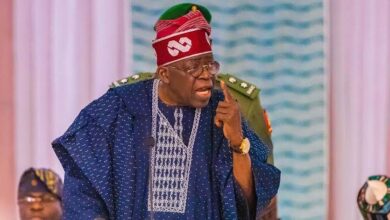FG Deepening Economic Hardship In Nigeria

Since President Bola Ahmed Tinubu assumed office 16 months ago, Nigerians have endured significant economic challenges, starting with the President’s declaration that “subsidy is gone” during his inauguration. This announcement led to a steep rise in petrol prices, causing widespread inflation, skyrocketing food costs, and increasing unemployment. The removal of the fuel subsidy has ushered in an era of relentless economic hardship, with acute hunger and food insecurity now rampant across the country.
In early October 2024, the price of petrol surged again, rising from N865 per litre to an unprecedented N1,030 per litre. This sharp increase comes after an already steep rise from N175 per litre in May 2023. Despite protests like #EndBadGovernance and #FearlessInOctober, aimed at opposing the government’s anti-people policies, the administration has continued with policies that have further deepened the economic burden on Nigerians.
The multidimensional effects of these policies are severe. Rising fuel prices have led to skyrocketing costs of goods and services, leaving many Nigerians, including children, struggling with hunger. Malnutrition threatens to worsen the country’s already poor child and maternal mortality rates, while the high cost of living has forced more children out of school as families can no longer afford tuition fees.
Data from the National Bureau of Statistics (NBS) underscores the severity of the situation. The inflation rate has consistently climbed, from 22.41% in May 2023 to 32.15% in August 2024. The cost of staple foods such as beans, yam, and garri has risen dramatically. For example, the price of a kilogram of brown beans increased by 263% between August 2022 and July 2024, and now costs N3,500 per kilogram, while a bag is priced at N210,000. Similarly, cooking gas, essential for many households, has become prohibitively expensive, now selling for N1,500 per kilogram.
Despite a minimum wage of N70,000, the cost of basic commodities has rendered this income insufficient, with the price of a bag of beans alone being three times higher than the monthly wage. The country’s unemployment rate has also worsened, rising to 5.3% in Q1 2024 from 5.0% in Q3 2023.
The World Food Programme (WFP) had projected that by the end of 2023, 18.6 million Nigerians would suffer from acute hunger, a number expected to increase to 26.5 million by the lean season of June to August 2024. Nigeria’s ranking as 109th out of 125 countries in the 2023 Global Hunger Index further highlights the impending food crisis.
Economic missteps have exacerbated the situation. Unchecked government spending, printing money without controlling waste, and a poorly managed subsidy removal program have contributed to inflation’s 13-month consecutive rise. The Naira has depreciated significantly, now exchanging at N1,700, down from N460 in May 2023, while interest rates have surged to 26.75%.
The government’s reforms, particularly those influenced by international financial organizations, have yet to provide relief to ordinary Nigerians. The harsh economic conditions have sparked fears of further protests from labor groups and the public, underscoring the urgent need for home-grown solutions that prioritize the welfare of the people.
Going forward, the government must abandon costly, unproductive projects and focus on alleviating the economic burden by implementing effective inflation-taming measures and boosting economic growth. Addressing Nigeria’s poor electricity infrastructure, investing subsidy gains transparently, and curbing government excesses are essential steps in steering the country away from further decline.
Ultimately, the Tinubu administration must ensure that its reforms have a human face, balancing fiscal adjustments with the urgent need to ease the hardships faced by millions of Nigerians. Without immediate and meaningful action, the risk of widespread social unrest continues to grow.



